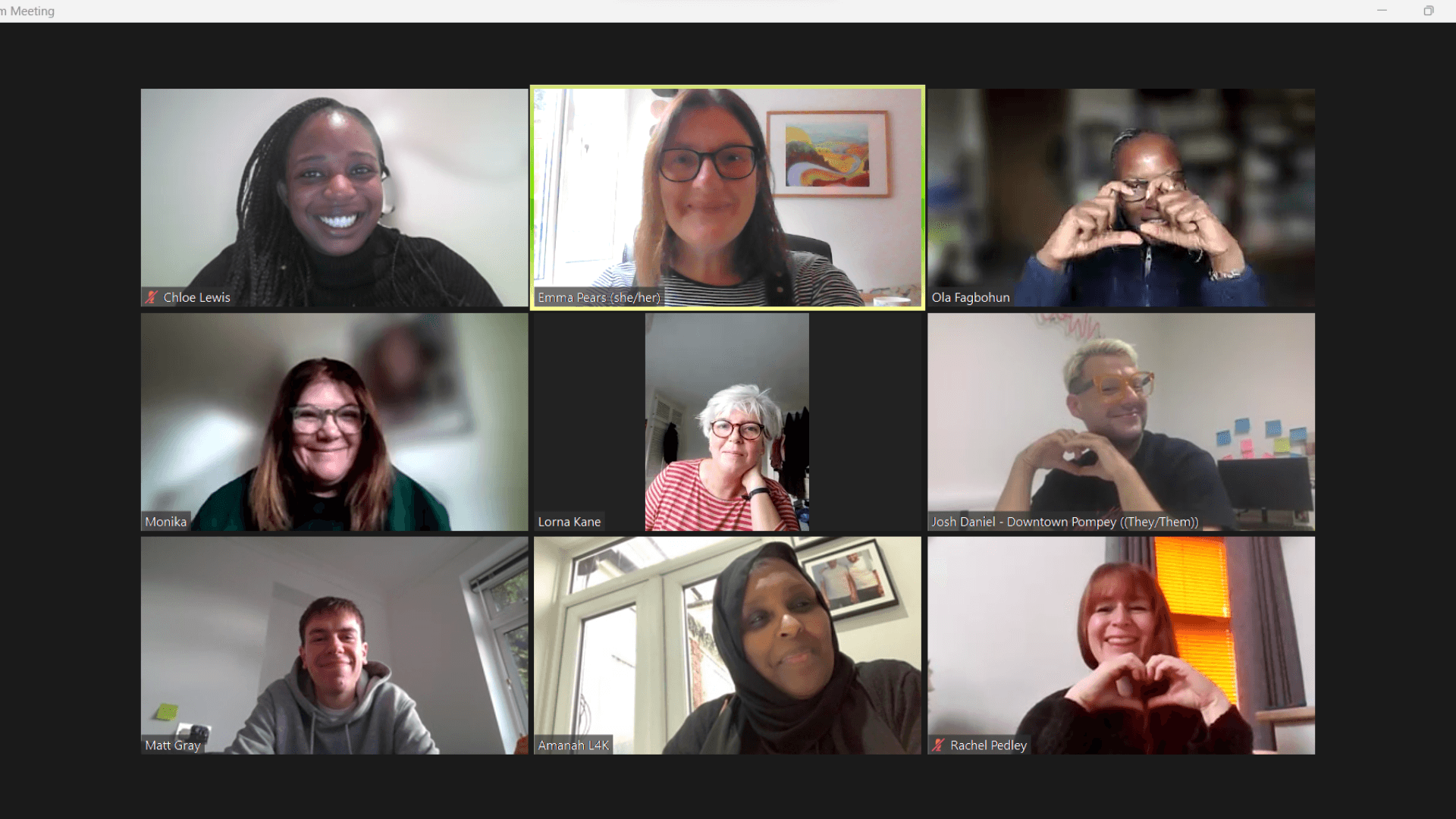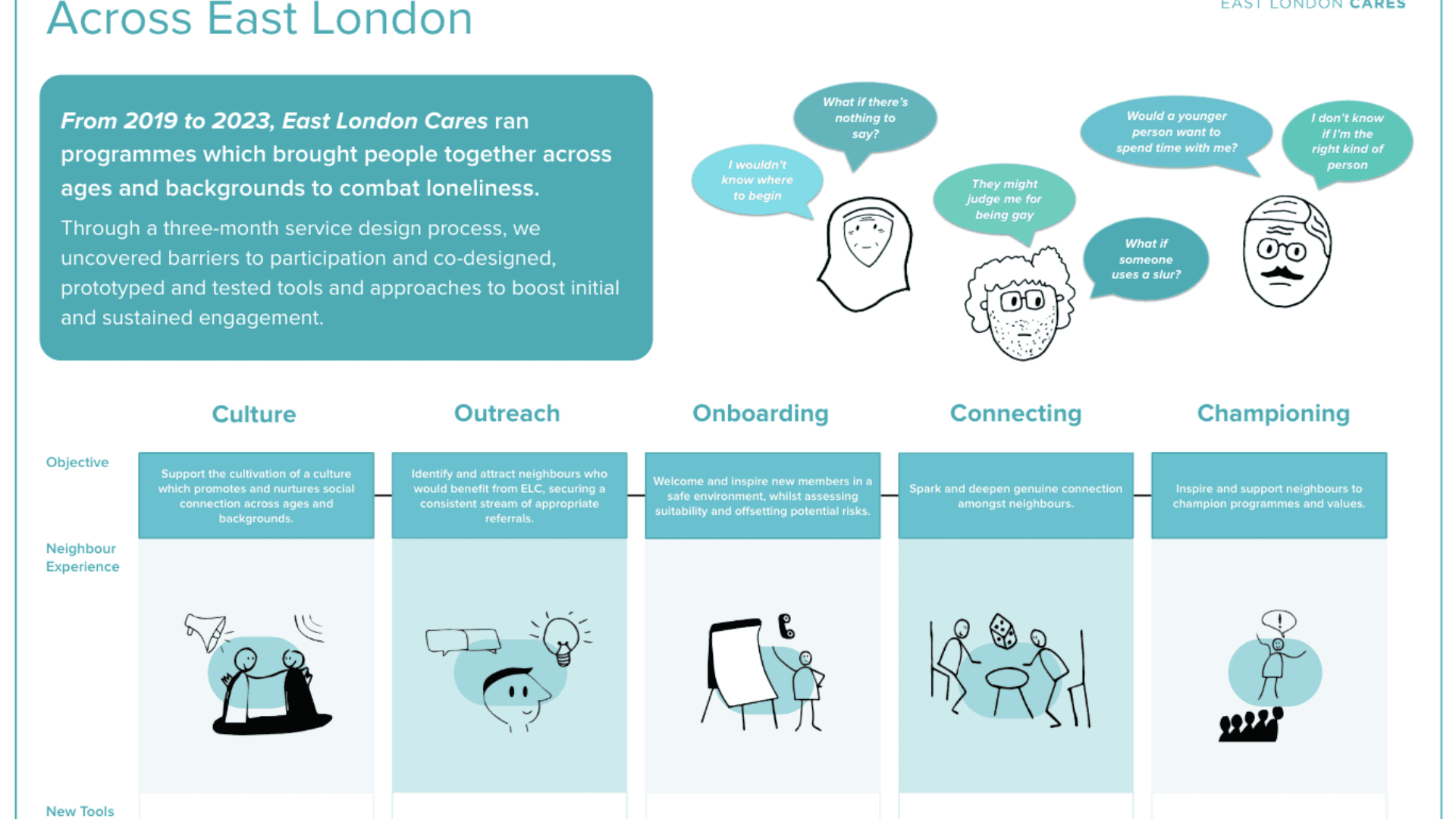
How three generations can forge connection in disconnecting times
Posted by The Cares Family on 11th February 2021
Please note: this post is 49 months old and The Cares Family is no longer operational. This post is shared for information only
Download, read and share the report here >>
In recent years, we've heard from older people in our communities how they'd love to spend more time with children, and we've heard from new parents how much they'd appreciate guidance and advice from older people, and to extend that beautiful connection across generations to their children too.
That's why, in 2020, with funding from the Greater London Authority's Family Fund, The Cares Family ran its 3G Social Clubs project. The project was inspired by wonderful initiatives around the country – notably the Together Project, Old People's Home for 4-Year-Olds and Apples and Honey Nightingale House, as well as older and younger neighbours involved in North London Cares, South London Cares, East London Cares, Manchester Cares and Liverpool Cares.
The project was explicitly designed to bring three generations together – to bridge the isolation experienced by many new parents and older people alike; to help people to feel valued and visible, and to build relationships that could have a wider and lasting societal impact.
We knew that this project could be important because we'd seen over nine years the value of intergenerational connection. For younger people, sharing time with older people reduces anxiety, improves self-worth and confidence, develops communication skills and improves familial relationships that all lead to better general mental health and quality of life. For older people, intergenerational contact deepens an understanding and appreciation of our changing world, and engenders happiness and belonging even as the world moves at breakneck speed.
For society at large, the impact of generational connection could be even greater than the sum of its parts – because it leads to reduced stereotyping, less polarised attitudes, improved civic participation and improved productivity, retention and occupational outcomes at work.
What we didn't know was that we would run this project amid a pandemic. In many ways, it made our project even more important than it might otherwise have been. It also made it harder.
Although delivering the 3G project in the midst of a pandemic was tough, the results speak for themselves – and point the way to a better, more connected, more empathic country after the crisis is over. Surveys showed us that of the 101 people who were part of the 3G community:
- 93% of parents and older neighbours felt more connected to people of a different generation as a result.
- 90% of parents said that as a result of taking part they now spend more time with people from a different background.
- 100% said there is something special about interacting different generations.
As Caesar said:
"We all have something to teach, and we all have something to learn. We are not all that different from one another."
We're so proud to present the report into the 3G Social Clubs project. It tells the story of how connections across three generations were formed even from afar, how we adapted programmes to bring people together even as they had to stay apart, and the potential for a wave of intergenerational connection to heal fragmented communities everywhere. The report also includes practical tips for people who wish to host their own activities bringing the generations together.


